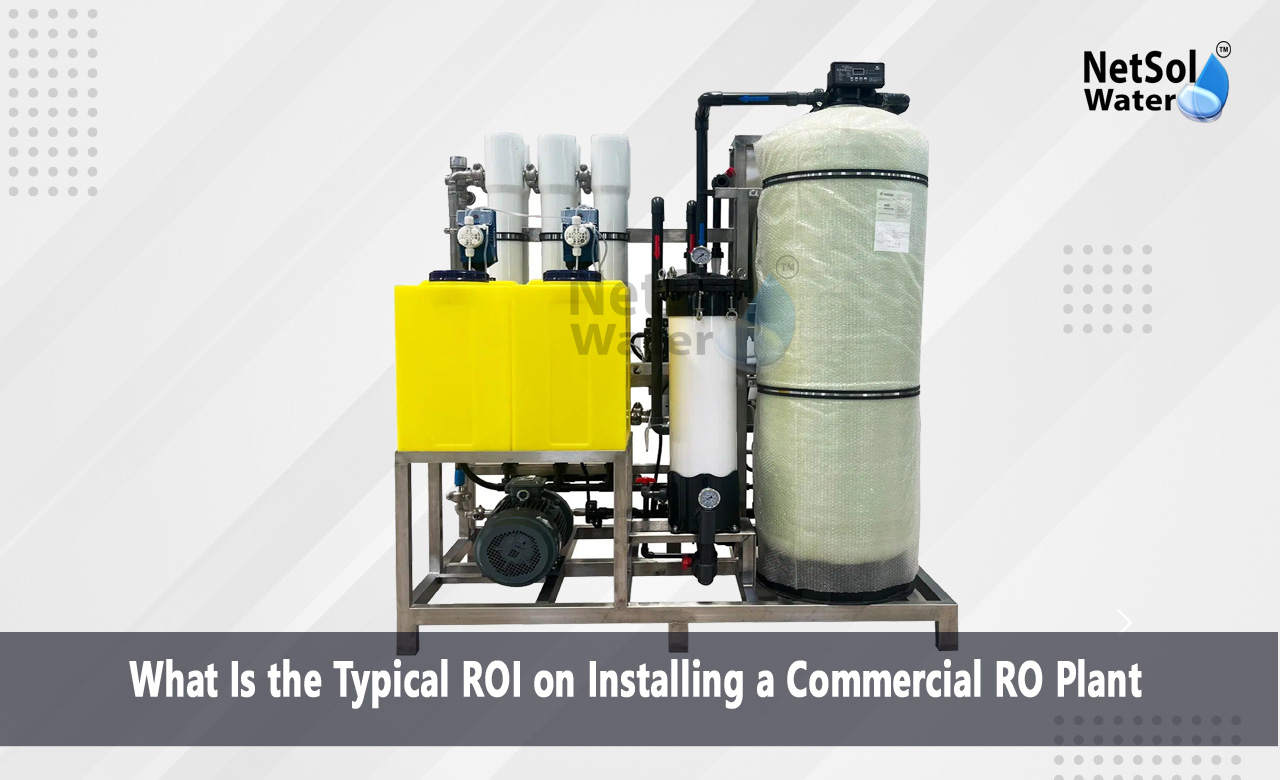What Is the Typical ROI on Installing a Commercial RO Plant?
Clean and safe water in the modern world is a necessity for most businesses. Restaurants, hotels, factories, and offices all need access to pure water. That is why most companies consider investing in a Commercial RO Plant. Yet one of the most important questions business owners have been regarding the typical ROI on installing a commercial RO plant. Knowledge of the return on investment enables the determination of whether the price and labor of installing an RO plant are justified.
We will discuss what ROI is in this context, the determinants of it, and why investing in a Commercial RO Plant usually proves to be profitable in the long term.
What Does ROI Mean?
ROI is short for Return on Investment. ROI tells you how much money or saving you receive versus how much you paid. For instance, when you invest money in a commercial RO plant, ROI informs you how many years you will have to break even and save money.
Understanding the typical ROI on installing a commercial RO plant enables companies to make intelligent decisions regarding their water treatment requirements.
Factors Affecting ROI on a Commercial RO Plant
ROI on a Commercial RO Plant is based on the following critical factors:
Capital Expenditure Cost
The initial cost of buying and installing the RO plant is different depending upon:
· Plant capacity (amount of water that can be treated)
· Type of technology used and features involved
· Quality and brand name of the equipment
· Complexity of installation and site conditions
Higher capacity or advanced systems may cost more initially but can offer better efficiency and savings over time.
Water Quality and Source
The quality of incoming water impacts how much treatment is needed. Poor quality water may require more complex processes, increasing operational costs. Conversely, if your water source is already relatively clean, the RO plant will be easier and cheaper to run.
Operational and Maintenance Costs
Operating a Commercial RO Plant demands electricity, routine maintenance, and periodic replacement of filters or membranes. Low-energy models with high efficiency lower recurring costs and enhance ROI.
Bottled or Purchased Water Savings
Numerous companies purchase bottled water or incur high bills for potable water supply. Having an RO plant eliminates or lowers these expenses, greatly enhancing ROI.
Type of Business and Use of Water
The amount of water your company uses each day influences the speed at which the investment returns. Water-intensive businesses, such as food processing or hotels, typically experience quicker returns.
What Does the ROI Usually Look Like?
While the typical ROI on installing a commercial RO plant may differ, most businesses find that the investment returns in a matter of years. It will depend on how much they save producing clean water on-site as opposed to purchasing water from external sources.
For instance:
· Companies which used to purchase large volumes of bottled water save considerably.
· Facilities that prevent penalties or shutdowns because of low water quality enhance their overall profitability and efficiency.
· Companies that recycle treated water minimize waste and save money.
Aside from direct financial gains, most companies also gain from enhanced water quality, customer satisfaction, and regulatory compliance.
Other Benefits That Enhance ROI
Apart from direct cost savings, a number of other benefits contribute value to the investment in a Commercial RO Plant:
Environmental Impact: An RO plant decreases plastic bottle waste and reduces the carbon footprint involved in transporting water.
Better Product Quality: Most industrial processes involve the use of pure water, and an RO plant provides quality consistently, cutting down on product defects.
Health and Safety: Giving clean water guards employees and customers against waterborne illnesses.
Brand Image: Companies that are proactive about green practices end up getting more customers and partners.
These may not immediately appear in figures but lead to long-term profitability and success.
Tips for Maximizing ROI for Your Commercial RO Plant
To achieve maximum ROI on your investment, keep the following in mind:
· Select a plant size that matches your water requirements without over purchasing.
· Opt for energy-efficient and long-lasting equipment.
· Plan for regular maintenance to prevent expensive breakdowns.
· Train personnel in correct operating and monitoring procedures.
· Utilize the treated water for a variety of purposes in order to make the most of its value.
Adhering to these habits guarantees your RO plant operates efficiently and economically, improving the typical ROI on installing a commercial RO plant.
Conclusion
The typical ROI on installing a commercial RO plant depends on the initial investment, water quality, operational costs, and corporate water consumption. But most companies have positive returns in the form of water purchase savings, product quality, and sustainability. A Commercial RO Plant is not just a sound financial investment but also an act of healthfulness and environmental stewardship.
Through thorough planning, choosing the appropriate system, and proper maintenance, your business can have a clean, guaranteed source of water and a good return on investment.
Do you need an advice or assistance on selecting the best water and waste water treatment unit? We have solutions for all your problems!
Let us know your problem, our experts will make sure that it goes away.
For an assistance or related query,
Call on +91-9650608473 Or write us at enquiry@netsolwater.com



